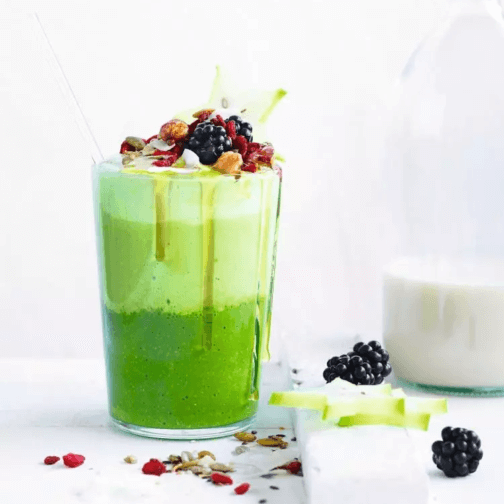
One month. No meat. What a difference it can make! Here’s why we should all give No Meat May a go this year.
Australians consume around 100 kilograms of meat per person per year – triple the global average! It’s also almost four times the amount recommended by the Planetary Health Diet, the optimal diet for both human and planetary health as set out by the EAT-Lancet Commission. So it’s not surprising that most people don’t consume adequate amounts of fruit, vegetables, wholegrains, legumes, nuts, or seeds. There’s simply not enough room on our plates!
This is where one-month diet challenges come in. They’re fun, free, supported ways to try out plant-based eating. Whether you’re looking for a transformational month, an opportunity to eat healthier, or to learn some new tricks in the kitchen, this is a great way to get started. In fact, 93 percent of No Meat May participants continue to eat less meat and other animal products beyond the challenge period.
Remember, eliminating meat for a month makes room on your plate for more of the good stuff. It’s always a good time to eat more healthy plant-based wholefoods! Here are four big reason to give it a go.
IMPROVE YOUR HEALTH
Prevent chronic disease and welcome many health benefits with a broader range and greater intake of whole plant foods. Consuming foods from plant rather than animal sources is the primary reason why vegetarians and vegans have a lower risk of being overweight or suffering from many chronic diseases.
Most plant food sources are lower in saturated fat, free of cholesterol, higher in fibre, and are all good sources of antioxidants and phytonutrients – all of which can contribute to a reduced disease risk. Consuming adequate amounts of dietary fibre may turn out to be the most important nutritional recommendation of all. Eating more fibre-rich foods such as wholegrains, vegetables, fruits, and legumes (such as beans, split peas, chickpeas, and lentils) is an important action you can take to improve your health. Prevention can eliminate disease. Here are a few examples:
Heart disease – Our leading killer may be reversed with the lowest-tech approach – diet and lifestyle. We now know that as soon as we stop eating an artery-clogging diet, our bodies may start healing themselves, in many cases opening up arteries without drugs or surgery.
Type 2 diabetes – People who eat a plant-based diet have been found to have just a small fraction of the diabetes rate seen in those who regularly eat meat. As diets become increasingly plant-based, there appears to be a stepwise drop in rates of diabetes.
Bowel cancer – The second-leading cause of cancer death in Australia is food related. Worldwide it’s the third most common cancer, and at least 70 percent of bowel cancer cases are avoidable. Numerous studies suggest that a plant-based diet may be beneficial for prevention.
Gut health – Symbionts, the good bacteria that live in symbiosis with us, are largely nourished by fruits, vegetables, grains, and beans. Pathobionts, the disease-causing bacteria that may disrupt our microbial balance, instead appear to be fed by meat, dairy, eggs, and processed foods.
SAVE THE PLANET
Reducing or eliminating meat and animal products is the single biggest way to reduce your environmental impact on the planet. Replacing livestock products with plant-based alternatives may just be our best strategy for reversing climate change. Here’s why:
Reduces emissions – Shifting to a mostly vegetarian diet, or even simply cutting down meat consumption to within accepted health guidelines, would make a large dent in greenhouse gases. Livestock is a major emitter of methane and a net contributor to the climate problem. Good grazing management cannot even offset its own emissions, let alone those arising from other systems of animal agriculture. Reducing methane emissions from all major sources, including animal agriculture, is our best chance to slow climate change over the next 20 years.
Reduces land use – Livestock takes up 80 percent of global agricultural land through a combination of grazing land and land used to grow animal feed. Yet it produces less than 20 percent of the world’s supply of calories. Switching to more plant-rich diets will also free up massive amounts of grazing land that we need to repurpose for the drawdown of greenhouse gases via land regeneration, forest protection, and other strategies.
Reduces poisonous effluent – Farmed animal waste is 130 times more toxic than human waste! With global livestock producing an estimated 13 billion tons of waste every year, the problem of what to do with it is increasing.
Less deforestation – One of the quickest and cheapest ways to reduce the annual emissions of greenhouse gases is to stop the destruction of our forests. A leading cause of deforestation is our unsustainable and growing demand for meat and animal products because of the land required to farm livestock.
Saves water – What we eat and drink makes up about half of our water footprint. The production of a meat-based diet typically requires twice the amount of freshwater as compared to a healthy plant-based diet. Eating a plant-rich diet could allow the same volume of water to feed two people instead of one, with no loss in overall nutrition.
Slows ocean acidification – Ocean acidification is occurring because too much carbon dioxide is being released into the atmosphere. About 30–40 percent of the carbon dioxide produced from human activity dissolves into oceans, rivers, and lakes. Coral reefs, shellfish, and top predators such as tuna could be devastated as human carbon dioxide emissions continue to acidify the world’s oceans.
END FACTORY FARMING
Factory farming is the number one cause of animal cruelty. You can help end it. We are grossly abusing our power over other animals. Pigs, cows, chickens, fish, and other animals raised for food suffer miserably on modern farms. Laws that protect dogs and cats specifically exclude farmed animals from most protection. As a result, blatant abuse is standard practice on farms both large and small.
Factory farming has been so well hidden that the straight-up facts can be unexpected and shocking. Knowledge is the single greatest threat to factory farming. The animal industries don’t want us to know that most eggs, chicken, and pork products come from factory farms. They realise these products wouldn’t sell if shoppers were told exactly how they were produced.
By changing our behaviour and educating those around us, we can create positive change for animals. Together we will end factory farming.
FEED THE WORLD
Farming animals is an extremely inefficient way of producing food for people. The resources required to raise animals and process them into food products is significantly higher than the resources required to produce most plant-based foods. Analysis of global agricultural yields shows that better use of existing croplands could feed 3.5 billion more people simply by shifting away from growing crops for animal feed and instead growing crops for direct human consumption.
Many animal products are exported and consumed by the world’s most privileged people, leaving the most vulnerable communities without adequate access to healthy food. By using more than their ‘fair share’, animal-based foods are a form of redistribution that exacerbate food scarcity, especially in low-income countries. Of the world’s almost eight billion people, nearly 10 percent were counted as undernourished in 2020. Children suffer the most severe consequences of our broken food system, with a child dying from malnutrition and hunger-related causes every 10 seconds – that’s more than 8,000 children every day!
Global hunger results from a web of immensely complex factors, including food scarcity and distribution. Food scarcity at the global level is an increasing issue, and with past surpluses being drawn down, it is fast becoming critical because the human population is projected to exceed nine billion by 2040. As our population increases, available land, water, energy, and other finite resources decrease. Any viable strategy to provide long-lasting hunger solutions and improve global food security must include reducing animal-based food consumption as part of the equation.
Lead image: No Meat May





















